AMoCO Study resources
The Abortion-related Morbidity and Mortality in Fragile and Conflict-affected Settings (AMoCo) study is a multi-year research project to assess the magnitude and severity of abortion-related complications in hospitals located in fragile or conflict-affected areas of the Central African Republic (CAR) and Nigeria.
The research is being conducted by Ipas in partnership with Médecins Sans Frontières, the Guttmacher Institute and Epicentre, and the Ministries of Health in Jigawa State (Nigeria) and the Central African Republic. This research was funded by Elrha’s Research for Health in Humanitarian Crises Programme (R2HC) which aims to improve health outcomes for people affected by crises by strengthening the evidence base for public health interventions. The programme is funded by the UK Foreign Commonwealth and Development office (FCDO), Wellcome, and the UK National Institute for Health Research (NIHR).
Ongoing findings from this study are adding to a growing body of evidence that highlights the unique challenges and consequences of the sexual and reproductive health needs of people affected by displacement. Several of our publications are available in French and English.
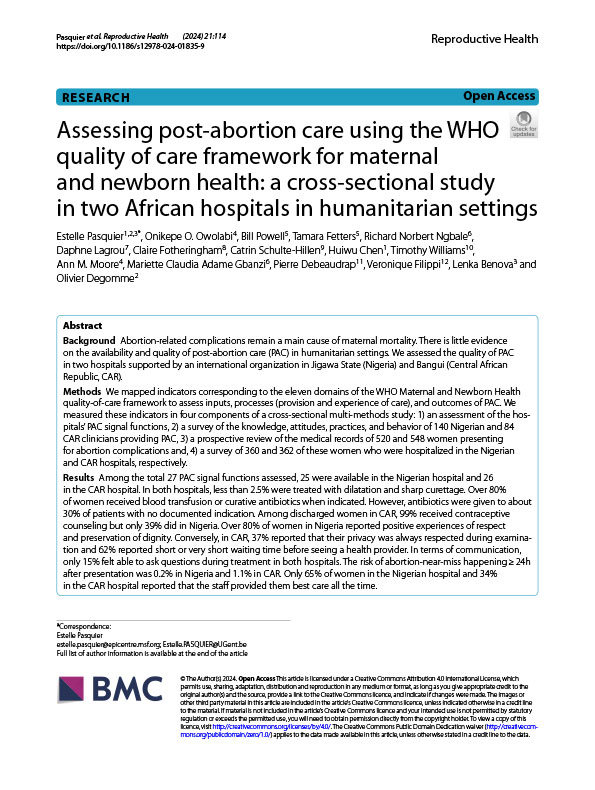
August 2024
Assessing post-abortion care using the WHO quality of care framework for maternal and newborn health: a cross-sectional study in two African hospitals in humanitarian settings
In humanitarian contexts, where abortion complications are a leading cause of maternal mortality, providing quality post-abortion care (PAC) is an important part of needed services. This paper describes the quality of PAC in two hospitals supported by an international organization in Jigawa State (Nigeria) and Bangui (Central African Republic). Quality indicators were measured in four components: 1) an assessment of the equipment and human resources available in hospitals, 2) a survey of the knowledge, attitudes, practices, and behavior of clinicians providing PAC, 3) an assessment of the medical care provided by clinicians to women presenting with abortion complications and, 4) a survey of a subgroup of these women who were hospitalized. The results showed that these hospitals were providing lifesaving PAC. However, hospitals need to strengthen several aspects of care including patient-centered approach, engaging patients in their own care and ensuring privacy, short waiting times and quality provider-patient communication.
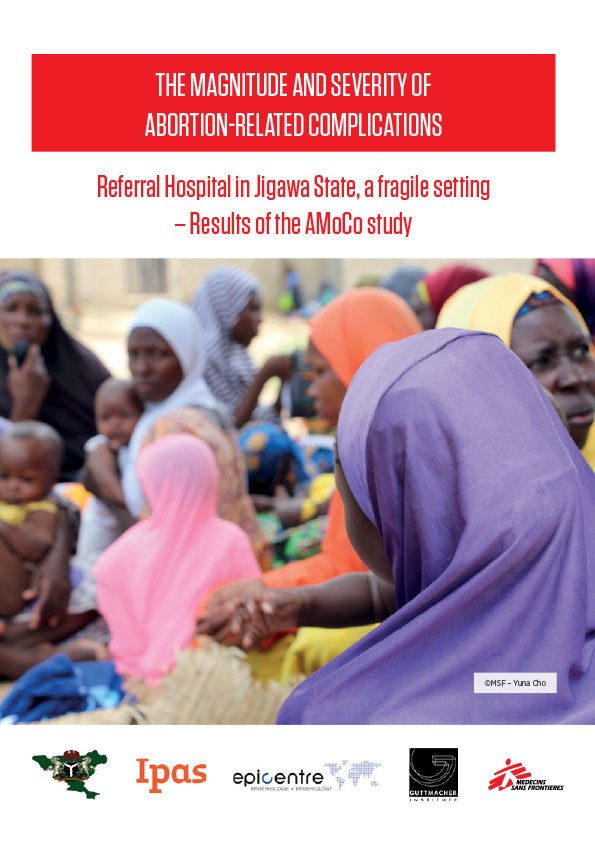
August 2023
The magnitude and severity of abortion-related complications
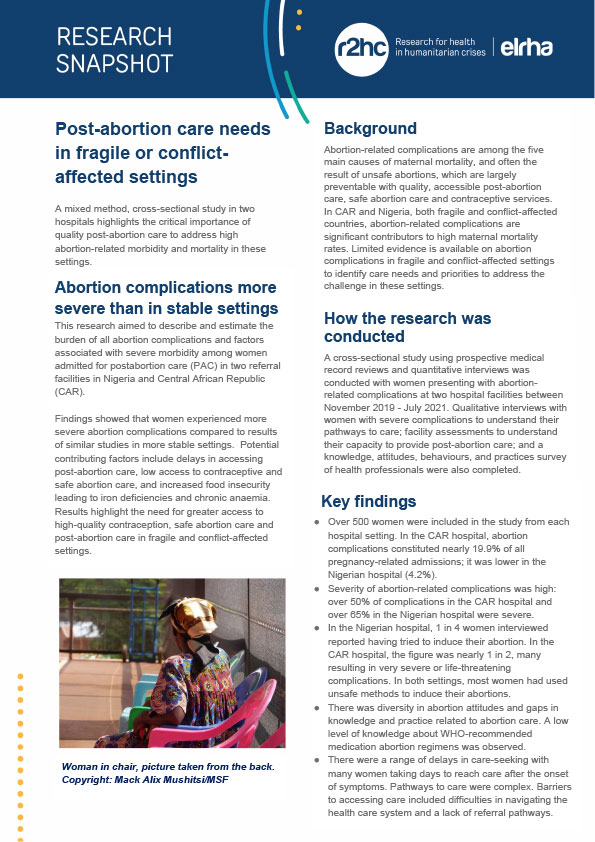
March 2023
Research Snapshot: Post-abortion care needs in fragile or conflict-affected settings
This research snapshot summarizes methods, key findings, and implications of the Abortion-related Morbidity and Mortality in Conflict-affected and Fragile Settings study conducted in Jahun, Nigeria and Bangui, Central African Republic.
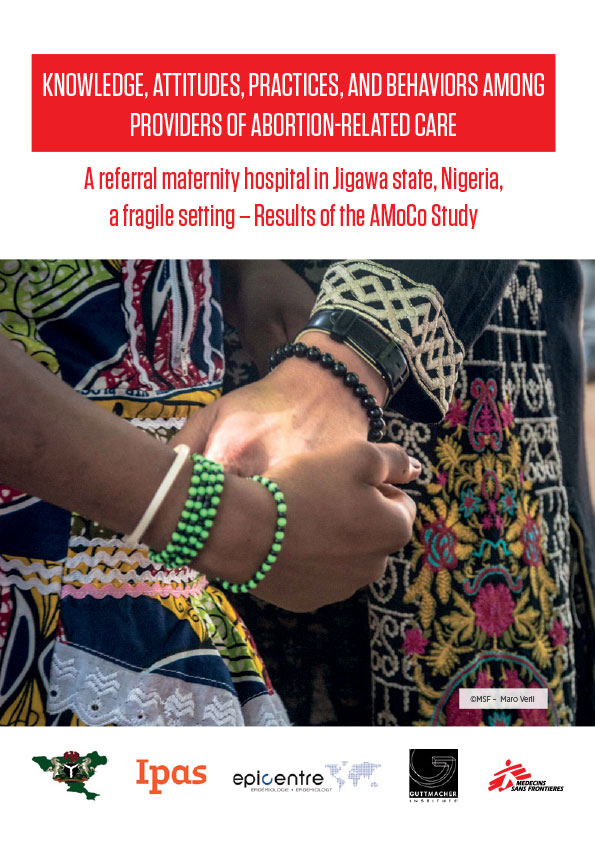
June 2023
Knowledge, attitudes, practices, and behaviors among providers of abortion-related care
A referral maternity hospital in Jigawa state, Nigeria, a fragile setting—Results of the AMoCo Study
This evidence brief from the AMoCo study presents selected results of a knowledge, attitudes, practices, and behaviors (KAPB) survey given to health professionals in Jahun, Nigeria providing abortion-related care. Providers are critical to providing timely and high-quality comprehensive abortion care (CAC) that can decrease abortion-related complications. This survey assessed not only the KAPB of CAC providers in hospital settings but also identified provider-related barriers to adequate CAC and points for improvement in the provision and accessibility of CAC services.
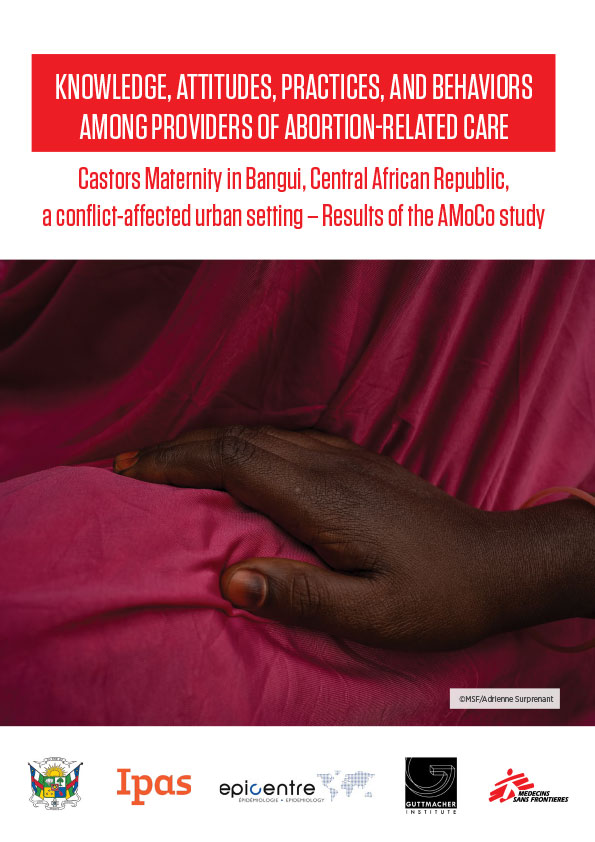
June 2023
Knowledge, attitudes, practices, and behaviors among providers of abortion-related care in a referral maternity hospital in Bangui, Central African Republic
This evidence brief from the AMoCo study presents selected results of a knowledge, attitudes, practices, and behaviors (KAPB) survey given to health professionals in Bangui, Central African Republic providing abortion-related care. Providers are critical to providing timely and high-quality comprehensive abortion care (CAC) that can decrease abortion-related complications. This survey assessed not only the KAPB of CAC providers in hospital settings but also identified provider-related barriers to adequate CAC and points for improvement in the provision and accessibility of CAC services.
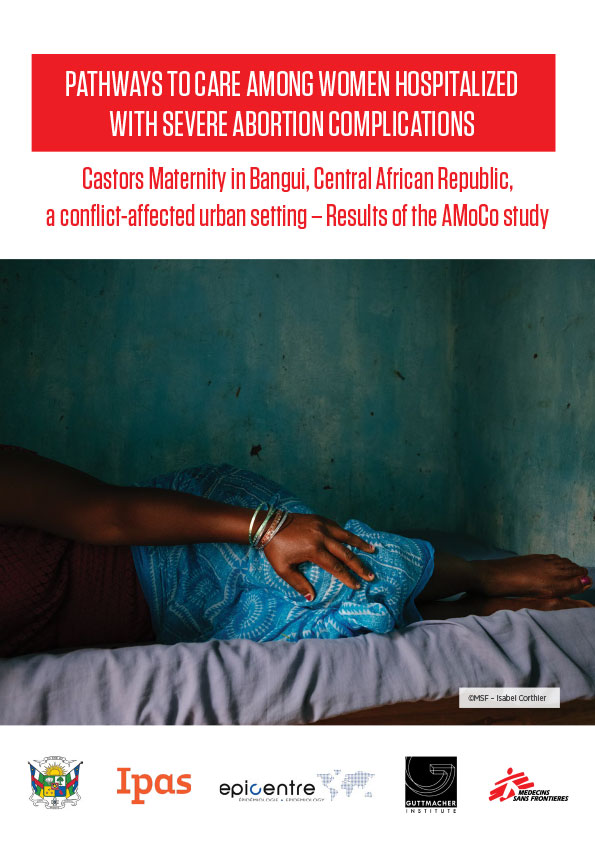
December 2022
Pathways to care among women hospitalized with severe abortion complications at Castors Maternity in Bangui, Central African Republic
This evidence brief summarizes key findings from the qualitative component of the AMoCo study, which aims to describe the access to care and treatment of women and girls hospitalized in Castors Maternity Hospital in Bangui for potentially life-threatening and near-miss abortion complications such as severe haemorrhage, severe sepsis, and uterine and intra-abdominal perforation.
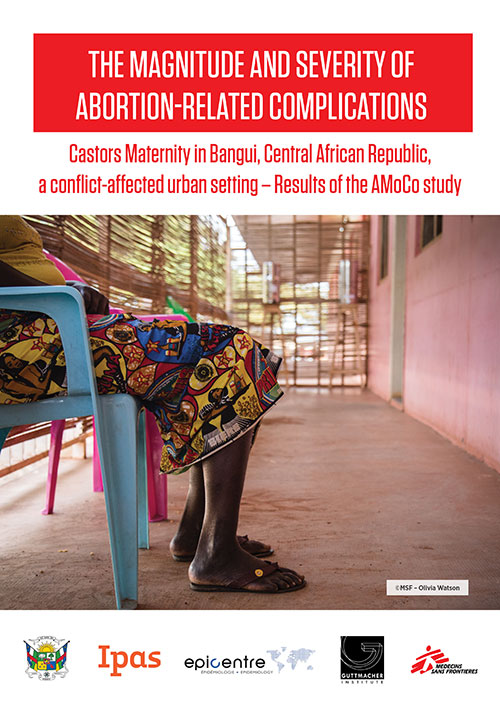
March 2022
The magnitude and severity of abortion-related complications in the Castors Maternity in Bangui, Central African Republic
This brief outlines selected findings from a research project on the burden of abortion-related complications and their contributing factors in the Maternity of Castors in Bangui, Central African Republic. The study found a greater severity of abortion-related complications in this facility compared to African hospitals in stable settings and reinforces the need to recognize abortion as a serious health issue among fragile or crisis-affected populations.
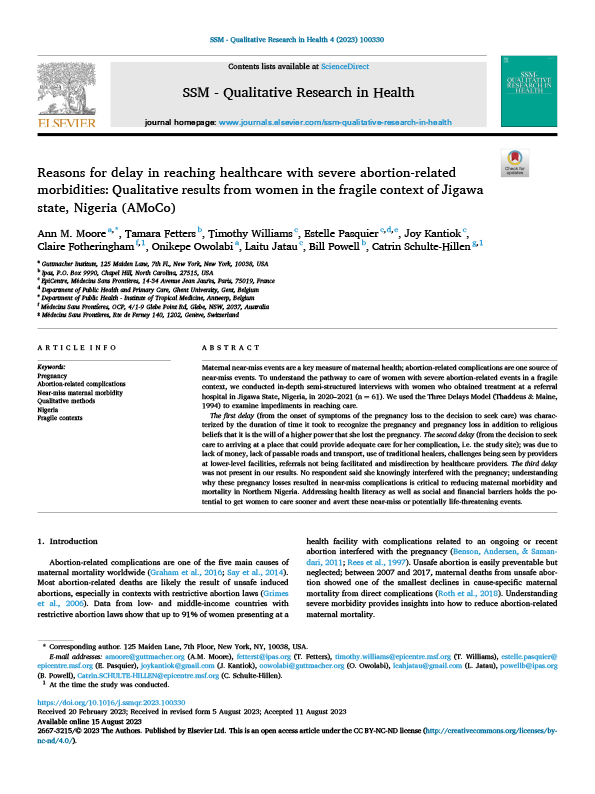
December 2023
Reasons for delay in reaching healthcare with severe abortion-related morbidities: Qualitative results from women in the fragile context of Jigawa state, Nigeria (AMoCo)
This article describes the pathways to care for women with severe abortion-related near miss events in a fragile context. This analysis describes the experiences of 61 women who obtained treatment at a hospital in Jigawa State, Jahun, Nigeria, using the Three Delays Model (Thaddeus & Maine, 1994) to examine impediments in reaching care.
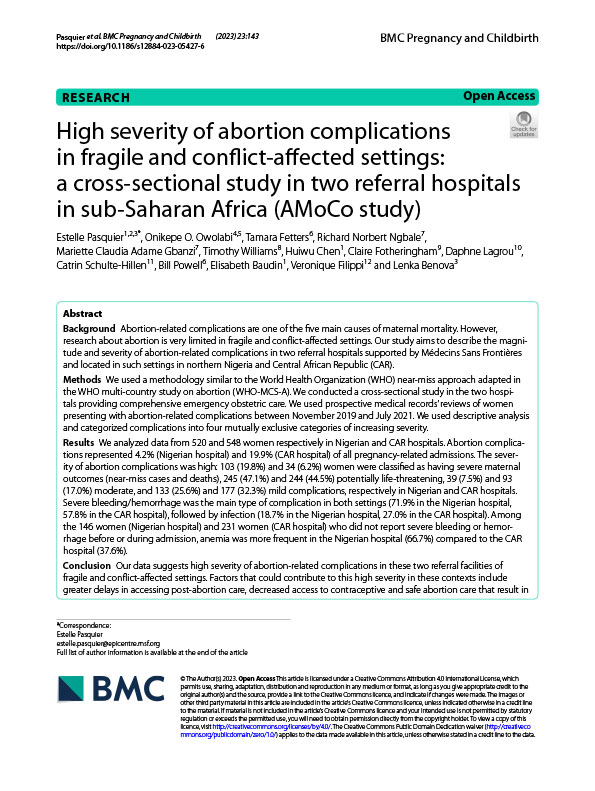
March 2023
High severity of abortion complications in fragile and conflict‑affected settings: a cross‑sectional study in two referral hospitals in sub‑Saharan Africa (AMoCo study)
This study describes the magnitude and severity of abortion-related complications in two referral hospitals located in two different types of fragile and conflict-affected settings and supported by Médecins Sans Frontières. The data suggest a high severity of abortion-related complications in these two facilities and highlight the need for better access to safe abortion care, contraception, and high quality postabortion care to prevent and manage complications of abortion in fragile and conflict-affected settings.


